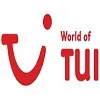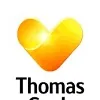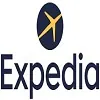Full Course
£80
£400Course Includes:
-
Online Study Mode
-
450 Hours
-
Study at your own Pace
-
Completion Certificate
Key Aspects of Course
-
Level 5 Diploma
-
Full Online Course
-
CPD Approved
-
Employer Approved
-
Fully Endorsed Course
-
450 Hours Training
-
No Entry Requirements
-
Boost Your Resume
-
Own Pace Study
-
Premium Course Material
-
Completion Certificate
£80
£400
Tourism Management Course
The Advanced Diploma in Travel and Tourism QLS Level 5 provides learners with a deeper understanding of the global tourism industry and the managerial skills required to succeed in travel-related professions. As a comprehensive Tourism Management Course, this programme covers essential areas such as travel operations, customer service, marketing, destination management, and tourism business practices. It is designed to help learners build the advanced knowledge needed to excel in both local and international tourism roles.
This qualification is also ideal for individuals seeking a structured Tours and Travels Course that offers flexible distance learning and industry-relevant insights. As one of the most accessible Tourism Courses Online, it serves as a strong choice for those looking for a travel and tourism course after 12th, helping them prepare for rewarding careers in travel agencies, tour operations, airlines, hotels, and tourism organisations. By the end of the course, learners will be fully equipped with the skills and confidence required for mid-level and supervisory roles in the tourism sector.
- Tourism industry fundamentals
- Customer service excellence
- Crisis and risk management
- Destination planning
- Sustainable tourism practices
- Travel and tour operations
- Tourism marketing basics
- Teamwork and communication
- Tour product development
- Leadership and organisational skills
this course
- Aspiring travel consultants
- Tour coordinators
- Hospitality and service staff
- Airline and airport employees
- Customer service professionals
- Entrepreneurs in tourism
- Students seeking tourism careers
- Those pursuing a travel career after 12th
SYLLABUS
Module 1
Module 1
Introduction to the Global Travel & Tourism Industry
Module 2
Module 2
Travel Products, Services & Smart Tourism Systems
Module 3
Module 3
Tour Operations & Digital Distribution Channels
Module 4
Module 4
Marketing and Sales in the Travel Industry
Module 5
Module 5
Customer Experience and Relationship Management
Module 6
Module 6
Risk, Crisis, and Reputation Management in Tourism
Expected Travel and Tourism market growth by the end of 2027
Increased in growth in different learning organizations
Average Salary
£22k - £50k per Annum
Hiring Companies
Certifications
OHSC Certificate of Completion - Digital certificate
Digital certificate - Included.
Quality Licence Scheme Certificate of Completion - Hard copy certificate
Hard copy certificate - £85
Note: A nominal fee of £9.99 covers the delivery charge within the United Kingdom and a nominal fee of £19.99 covers the delivery charge outside the United Kingdom.
Frequently Asked Questions (FAQs)
Yes. All of our Travel and Tourism Online Courses are delivered through a flexible digital learning platform, allowing you to study from any location without attending physical classes.
No. Our programmes are fully self-paced, meaning you can complete your studies whenever it suits you. This makes our tourism courses online ideal for those balancing study with work or family life.
Yes. The price covers all digital study materials, tutor support, and registration. Optional certificate upgrades are available but never added automatically.
You’ll be paired with an experienced tutor who will guide you through key concepts, answer your questions, and provide detailed feedback on your assignments.
Absolutely. Students worldwide can join our online travel and tourism courses, as all content is delivered digitally with no geographical restrictions.
Yes. Our Travel and Tourism Online Courses start with fundamental topics, making them ideal for individuals with little or no industry knowledge.
A device with Internet access is all that’s required. All reading materials, modules, and assessments are provided online.
Definitely. Our Tourism Online Courses offer structured lessons, clear explanations, and MCQ-based assessments—supported by tutor guidance—to help you understand real-world travel and tourism operations effectively through online study.
A beginner-level programme is ideal. Learners seeking a more advanced understanding may choose comprehensive travel and tourism courses online that explore customer service, travel planning, and tourism management.
Yes. Completing one of our online tourism courses can support opportunities in travel agencies, tour operations, hospitality, customer service roles, and other tourism-related positions.
Full Course
£80
£400Course Includes:
-
Online Study Mode
-
450 Hours
-
Study at your own Pace
-
Completion Certificate
Key Aspects of Course
-
 Full Online Course
Full Online Course -
 CPD Approved
CPD Approved -
 Employer Approved
Employer Approved -
 Fully Endorsed Course
Fully Endorsed Course -
 No Entry Requirements
No Entry Requirements -
 Boost Your Resume
Boost Your Resume -
 Own Pace Study
Own Pace Study -
 Premium Course Material
Premium Course Material -
 Completion Certificate
Completion Certificate
£80
£400




